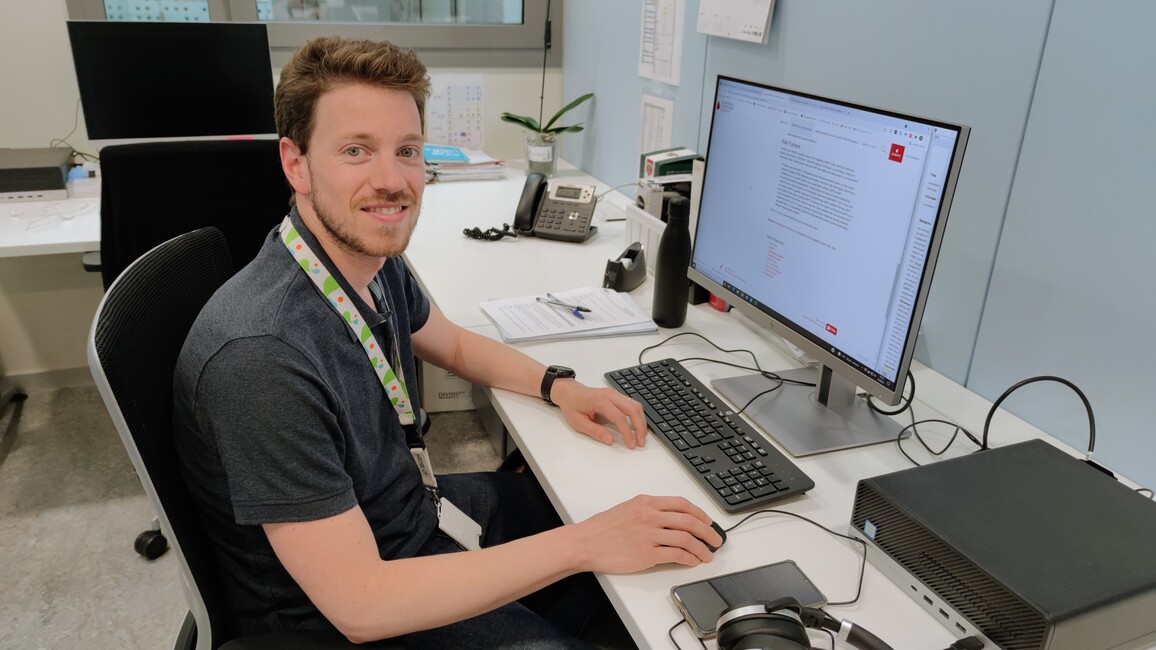The Catalan telethon funds a project to determine the genetic and epigenetic basis of the pediatric inflammatory syndrome produced by COVID-19
Dr. Gerardo Ferrer, a researcher at the Josep Carreras Leukemia Research Institute and one of the four signatories of the project, will oversee the existence of epigenetic factors that could explain the development of this rare pediatric syndrome.

The 2020 edition of the Marató de TV3 and Catalunya Ràdio, the Catalan public broadcasting systems telethon, closed the score with a total of 13,864,073 euros raised, the third highest figure since the beginning of the program in 1992, which will be used to finance 36 research projects on the effects of COVID-19. One of these, funded with almost 400,000 euros, will have the participation of Dr. Gerardo Ferrer, epigenetics specialist at the Josep Carreras Leukemia Research Institute.
In children, SARS-Cov-2 infection is usually asymptomatic or has mild symptoms. However, in a small number of cases it evolves into a potentially severe form called multisystemic inflammatory syndrome associated with COVID-19 (MIS-C), reminiscent of Kawasaki syndrome. The fact that MIS-C appears 4 to 5 weeks post-infection, that is, once the immune response has already managed to neutralize the virus, makes researchers suspect that it is an alteration in the control mechanisms of this response.
The main hypothesis is that some of the lymphocytes activated during the SARS-Cov-2 response remain active once the infection has passed and attack structures on its own body, producing inflammation. Previous research has already shown that there is a genetic and epigenetic predisposition to develop severe forms of COVID-19 in adults and, therefore, researchers will compare samples from children who have developed MIS-C with others who have contracted mild COVID-19, as well as with children diagnosed with Kawasaki syndrome.
The aim of the project is to collect multiomic data from study participants, i.e., genomic, transcriptomic, epigenetic, and immune features, to try to determine the susceptibility factors leading to MIS-C upon developing COVID-19 disease, to better understand the autoimmune nature of these syndromes and try to anticipate them by personalizing treatments. According to Dr. Gerardo Ferrer, approaching this phenomenon from different profiles is essential because "to face complex challenges, as is the case of children suffering from MIS-C, we need the union of multidisciplinary groups that can understand them and find solutions."
The three-year project will be coordinated by Dr. Carlos Rodrigo Gonzalo de Liria (Germans Trias i Pujol University Hospital Research Institute, IIGTiP), and will have as main researchers Dr. Eduardo López Granados (Foundation for Biomedical Research of La Paz University Hospital, IDIPAZ), Dr. Gerardo Ferrer Aguilar (Josep Carreras Leukemia Research Institute Foundation) and Dr. Aurora Pujol Onofre (Bellvitge Biomedical Research Institute Foundation, IDIBELL).